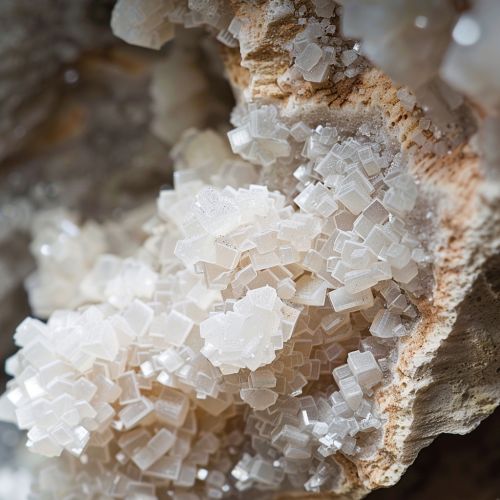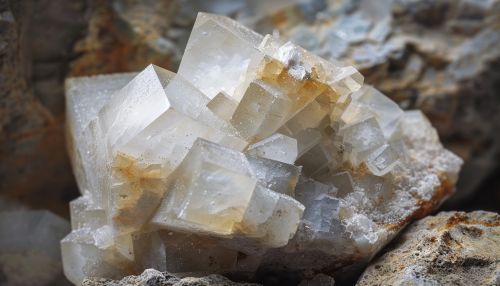Calcium carbonate
Overview
Calcium carbonate is a chemical compound with the formula CaCO3. It is a common substance found in rocks as the minerals calcite and aragonite and is the main component of pearls and the shells of marine organisms, snails, and eggs. Calcium carbonate is the active ingredient in agricultural lime and is created when calcium ions in hard water react with carbonate ions to create limescale. It is medicinally used as a calcium supplement or as an antacid, but excessive consumption can be hazardous.
Structure and properties
Calcium carbonate is a white, insoluble solid that occurs naturally as chalk, limestone, and marble. It is also the main component of shells of marine organisms and eggshells. The structure of calcium carbonate can be classified into two types based on the arrangement of the calcium ions and the carbonate ions in the crystal lattice. These are the calcite structure and the aragonite structure.


Occurrence
Calcium carbonate is found in over 4% of the earth's crust. It occurs extensively on the earth's surface in the form of limestone, chalk, and marble. It is also found in the shells of marine creatures and in eggshells. The largest deposits of calcium carbonate are found in the sedimentary rock known as limestone, which can be up to 99% calcium carbonate.
Production
Calcium carbonate can be produced in several ways. One method is by the sedimentation of microscopic marine organisms such as foraminifera and coccolithophores. Another method is by the precipitation of calcium ions in a body of water, resulting in the formation of calcite or aragonite. It can also be produced industrially by heating limestone to high temperatures, a process known as calcination.
Uses
Calcium carbonate has numerous applications due to its properties. It is used in the construction industry as a building material and as a raw material in the production of cement. It is also used in the paper industry as a filler and coating pigment. In agriculture, it is used to improve the quality of the soil and to neutralize acidic conditions. In medicine, it is used as a calcium supplement and as an antacid.
Health and safety
While calcium carbonate is a relatively safe substance, it can pose health risks when consumed in excess. Overconsumption can lead to hypercalcemia, a condition characterized by an abnormally high level of calcium in the blood. This can result in kidney stones, constipation, and impaired kidney function. Inhalation of calcium carbonate dust can also cause respiratory problems.
Environmental impact
Calcium carbonate plays a significant role in the carbon cycle. It acts as a carbon sink, absorbing carbon dioxide from the atmosphere and storing it in a solid form. However, the extraction and processing of calcium carbonate from limestone can result in significant environmental impact, including habitat destruction and air pollution.
